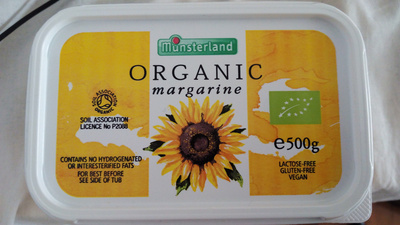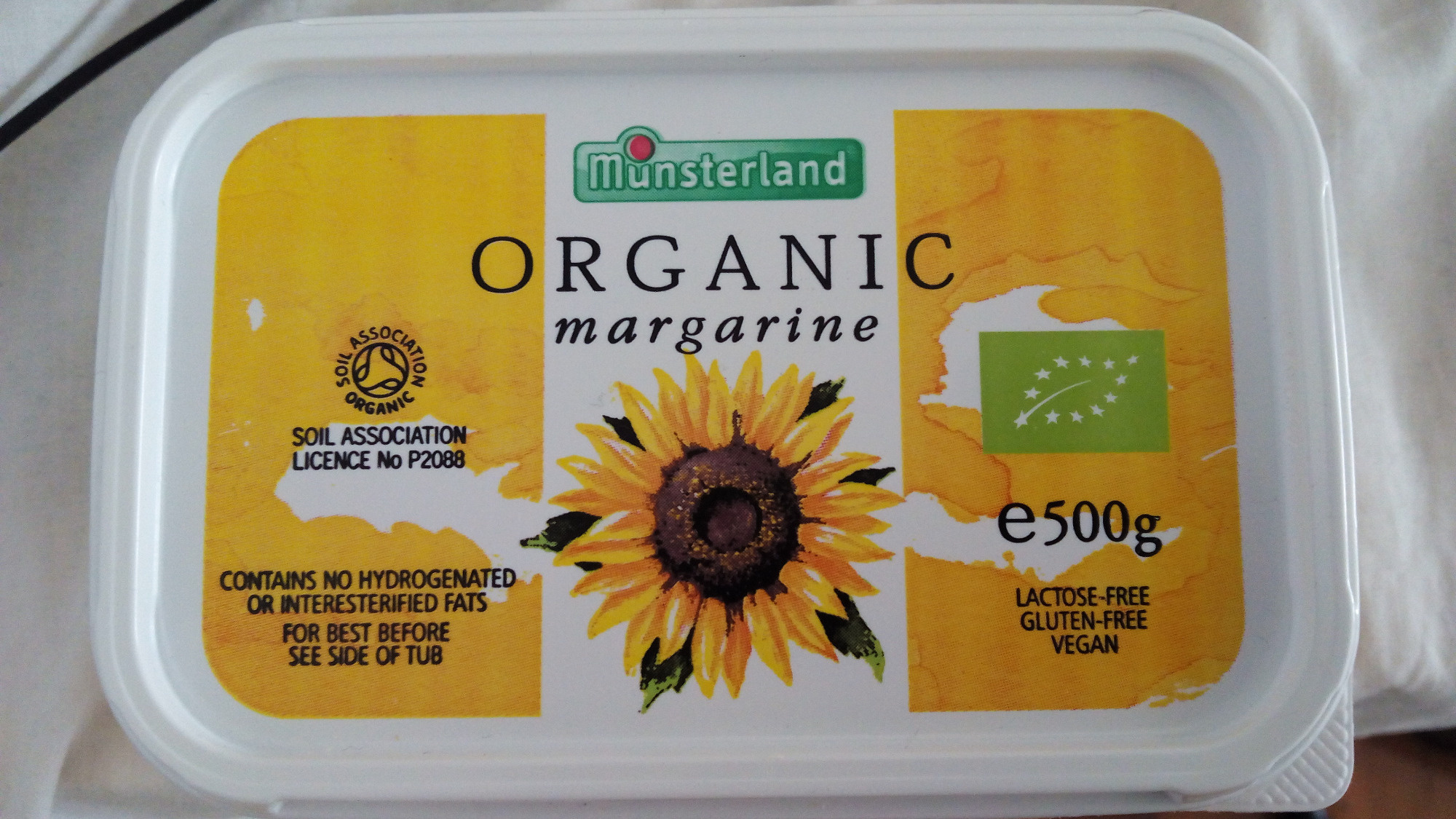Margarina Orgánica - Münsterland - 500 g
Aquesta pàgina del producte no està completa. Podeu ajudar a completar-la editant-la i afegint-hi més dades a partir de les fotos ja disponibles, o fent-ne més amb l'aplicació de androide o iPhone / iPad. Gràcies!
×
Codi de barres: 4000349222244 (EAN / EAN-13)
Nom comú: Margarina orgánica
Quantitat: 500 g
Empaquetament: Plàstic
Marques: Münsterland
Categories: Aliments i begudes amb base vegetal, Aliments amb base vegetal, Greixos, Productes per untar, Productes amb base vegetal per untar, Productes salats per untar, Greixos d'untar, Greixos vegetals, Margarina
Etiquetes, certificacions, premis:
Lliure de gluten, Orgànic, Vegetarià, Orgànic UE, Vegà, Sense lactosa, Soil Association, es:Soil Association License

Llocs de fabricació o processament: Alemania
Botigues: Ecosabor
Països on es va vendre: Espanya
Matching with your preferences
Salut
Ingredients
Processament d'aliments
Additius
Anàlisi dels ingredients
Nutrició
Entorn
Petjada de carboni
Empaquetament
Transport
Espècies amenaçades
Etiquetes
Report a problem
Fonts de dades
Producte afegit per sgalan
Última modificació de la pàgina del producte per naruyoko.
La pàgina del producte, també editada per jbarcelona, packbot, roboto-app.







